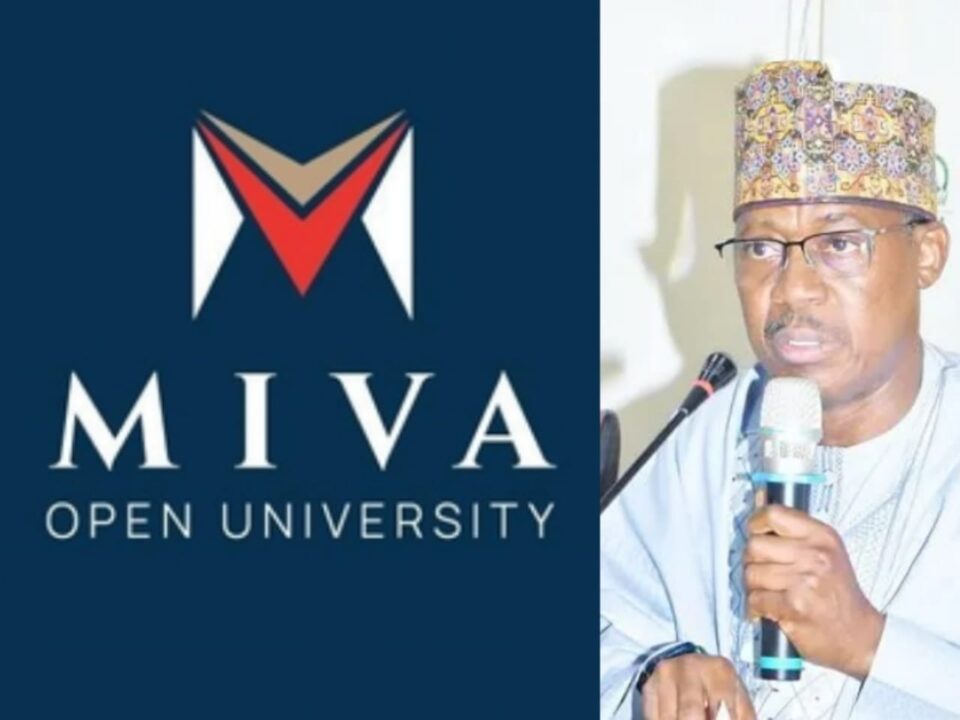By Felix Khanoba
Acting Executive Secretary of the National Universities Commission (NUC), Chris Maiyaki, has emphasised the need for university administrative staff to adopt full digital transformation to meet the current demands of a virtual learning environment.
Maiyaki highlighted this necessity while delivering a lecture at the inaugural Miva Open University Public Lecture on Wednesday in Abuja.
He stressed that acquiring relevant computer software knowledge is crucial for effectively navigating advanced learning environments.
Speaking on the theme, “The Changing Role of University Administrators in an Open Distance Learning (ODL) Setting,” Maiyaki explained that the administrative staff encompass everyone from the Vice Chancellor to both academic and non-academic staff with assignments in the university.
“The administrative staff must be prepared for full digital transformation,” Maiyaki asserted. “ICT literacy is no longer sufficient. Continuous training and retraining, modern techniques and skills, and exposure to best practices are essential for coping with the expanding nature of ODL.”
He further advised staff to become proficient in the relevant computer software necessary for the virtual learning environment and to eliminate counterproductive administrative bottlenecks.
“We must align ourselves with leadership styles that foster efficient and effective ODL delivery. Your role is to act as an equal stakeholder, ensuring the university thrives and its name endures,” he said.
Maiyaki also urged administrative staff to embark on aggressive sensitization and awareness campaigns to address misconceptions regarding the quality of degrees obtained through traditional and ODL modes of education.
“There will be no university without students, therefore, administrative staff must organize student-centered activities,” Maiyaki added.
Earlier, the Vice Chancellor of Miva Open University, Prof. Tayo Arologun, underscored the significance of the topic, noting that the landscape of higher education is rapidly evolving, with ODL at the forefront of this transformation.
“The impact of ODL on Nigeria’s economic development cannot be overstated. By breaking down barriers to education, ODL empowers diverse populations, including those in remote and underserved areas, with the skills and knowledge necessary for economic participation. This leads to increased workforce competence, entrepreneurial growth, economic inclusion, cost-effective education, and bridging skill gaps,” Arologun said.



